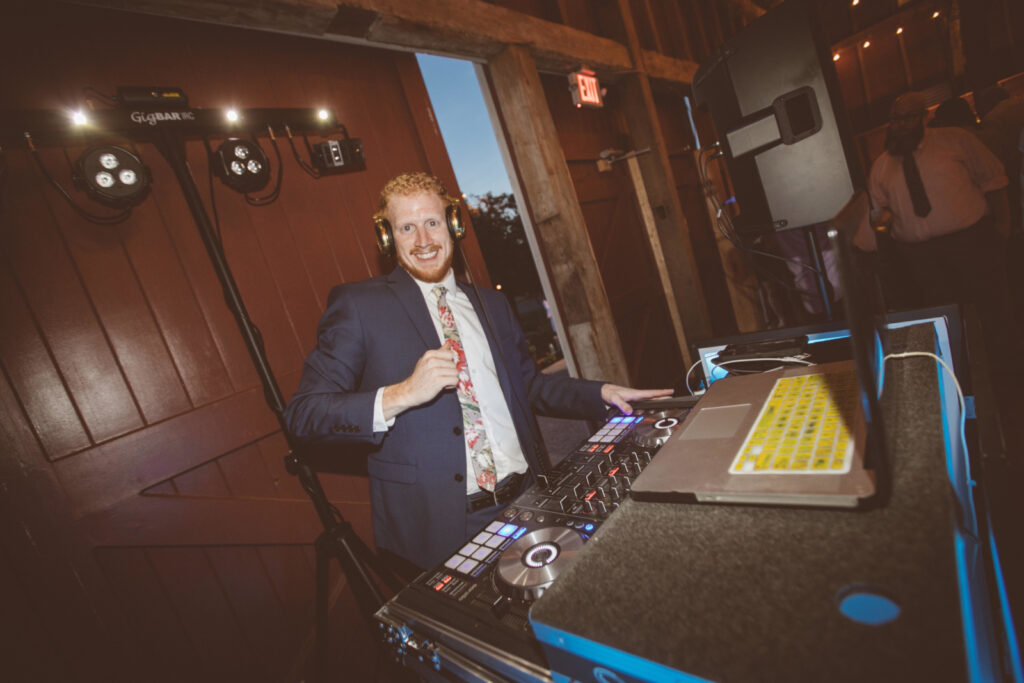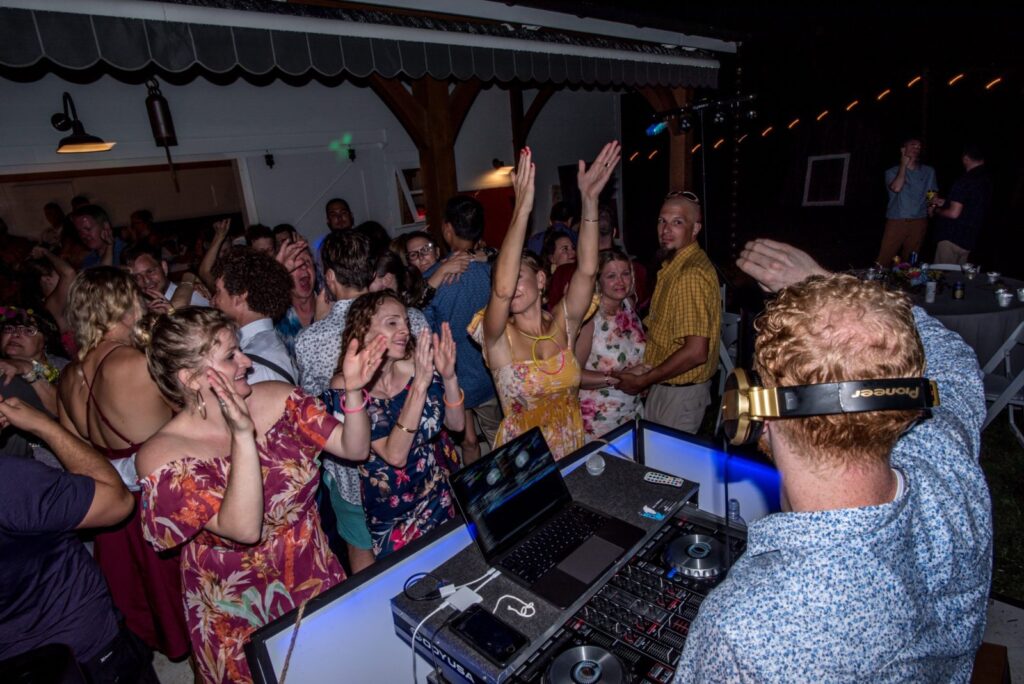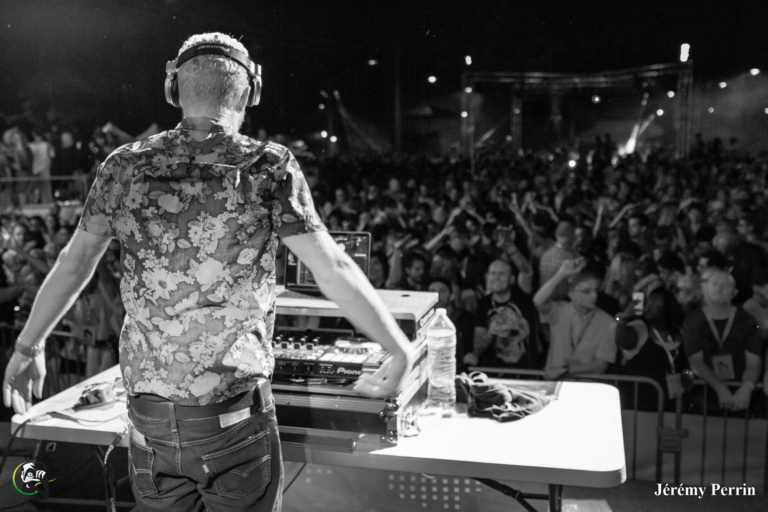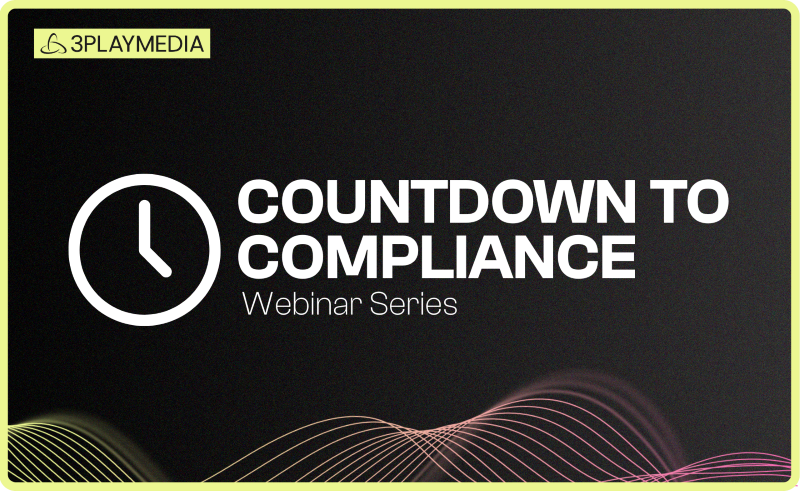
Faces Behind the Screen
Nico DiMarco
“I was born deaf. I come from 4 generations of deaf members in our family. My parents, brothers, and uncles are all deaf. The way that I grew up was never about hearing, so my parents didn’t understand why I loved music so much. Growing up in a deaf family, I was never exposed to music. I never understood the concept of music until I explored it on my own. I started watching BET and VH1 as a kid, and I used to keep up with all the current music trends. My parents used to ask me, “why do you like music? This doesn’t make sense, you can’t hear”.

I can hear enough just to pick up on the rhythm. My parents saw how much I wanted to invest, so they helped me by purchasing a home theater and some speakers I could connect to the television. When they added the equipment, it was a game changer. It allowed me to access way more than I ever could. I used to rely on putting my hands on the TV screen to feel the rhythm. My parents were huge proponents for my love of music.
I can hear very little music. It’s not even enough to understand the words people are saying unless I’m reading along with the lyrics and I memorize them. So don’t misunderstand that I can hear the song or lyrics. The song “Yeah!” by Usher is a song I often listen to. I can pick up on when he says “Yeah! Yeah! Yeah!” without reading the lyrics because it’s an easy rhythm. I have no idea what he’s saying in the rest of the lyrics, so I have to memorize and study them.
I put the volume on max so that I can try my best to hear very little sound. Most of it is bass that I can hear. Many people around me can hear [my music] from my headphones because they’re on so loud. People complain about the noise all the time. When my mom bought the entertainment system with subwoofers, the neighbors complained immediately. They told us to turn it down, but if I turned it down, I wouldn’t be able to feel it. We had to make compromises. I was only able to use it during certain times, and by 10 o’clock it was curfew. I really struggled because at night was when I wanted to feel the music the most. My goal was to make sure that I wasn’t interrupting people while still enjoying music, so I had to use a subpack with headphones to listen to music at night.”

“Becoming a DJ was organic for me. I grew up loving music. Oftentimes when my friends were partying or listening to music, I always wanted to be a part of it. There were times when I would bring my speakers along with me when I hung out with friends. Everyone loved my music selection, and they would always hope that I stayed longer or bring it to the next party. It started out as me enjoying it by myself, and then my friends would always ask me to bring music. If I were going to friend’s house, the bar, or the club, I was always trying to connect. I couldn’t really dance to songs that I couldn’t understand – sometimes there was a lot of talking or it was too slow for me to feel the beat. I couldn’t connect with these kinds of songs.
I wanted to request special songs from the DJ that I knew I would be able to appreciate. Either the DJ didn’t accept the request or they didn’t have the song. I know DJ’s can be busy, and can’t always take everyone’s requests, so I decided to turn the tables and become a DJ. The deaf community, who always loved music, was able to communicate with me if they needed something, and I was always more than willing to work with them.
I have a lot of deaf events and there were no deaf DJs back when I wanted to become a DJ. There were a lot of hearing people requested to DJ events, but they didn’t bring the appropriate music so that deaf people could feel the bass. They would show up with tiny speakers that deaf people would balk at. When we mean loud, we mean break the speakers loud! We can’t feel it unless we can appreciate the bass. Some DJ’s go to a gig and play music, but don’t really appease the audience. I’m really different. I want to make sure the audience is apart of the music, and that the song fits the crowd.
Some communities have never seen a deaf DJ before, and may never understand why a deaf person wants to DJ. I sometimes don’t have the time to explain to other DJ’s the importance of having a deaf DJ. However, being friends with hearing DJs has made a difference. I have two hearing friends in particular that are DJs, and I explained to them that if I can’t hear certain songs then the deaf community won’t be able to either. Because these two DJs have taken the time to ask, they’ve learned what is important for the deaf community. But, deaf people tend to memorize original songs and may not understand remixes. So if I play remixes, they may not recognize the song because it’s new to them. I always hated remixes when I was in the club because I couldn’t follow along, but from a DJ perspective, I understand remixes.
The most popular song that I play when I DJ is ‘Uptown Funk’ [by Bruno Mars]. That’s the song that every deaf person reacts too. It’s easy to dance to and feel the beat. I also play a lot of 90’s and 00’s music because they tend to have a lot of beats. I like to see people enjoying themselves and dancing. I get inspired by people dancing so much that they’re sweating and don’t want to take a break because they’re having fun. One thing I’ve learned is that there are some songs that have swears. I would play them and people would tell me, “Nico, this song has bad words!” I learned that I have to do my homework and find appropriate songs depending on the crowd. I have to make sure that I’m pleasing my crowd. It will change depending on the audience: prom music and club music are very different.”

“My biggest role model is my mom. She’s a single mom who raised three boys. Just seeing what she went through, and how she made it – that’s a role model I wish I could become. Growing up in a deaf family was normal. There were no communication barriers. I assumed everyone had the same experience until I started making friends who were deaf and had hearing parents. They couldn’t communicate with their parents because their parents didn’t know sign language. It’s sad because they don’t really form relationships with their family members. It wasn’t until I got older that I realized how fortunate I was to be in a deaf family. My friends never had conversations at the dinner table with their parents. I couldn’t imagine not having a conversation at the dinner table because it was a huge part of my upbringing. I’m so lucky to have a deaf family and to have my experience be all-inclusive because everybody was apart of that.
Sadly I get discriminated against as a deaf person. I think as a deaf DJ, oftentimes people don’t trust my abilities because I can’t hear. Sometimes I won’t get hired [for a gig]. There’s nothing I can do about being deaf, but there is something I can do about being a DJ. I think it’s about exposing people to the deaf culture and what it’s all about. Hearing is not a barrier for us. When people say we can’t do things, we constantly have to prove to people that we can do anything we put our mind to.
I have a lot of proud moments. One summer I went to Reims, France for a deaf festival. The festival was all about deaf talent and performances. They always hired deaf businesses, with the exception of the DJ, until they found out about me. I DJ’d for 7,000 people. I never experienced that before. It was like a concert! People were moving their hands along with the motions I was showing them. People were following me like I was someone – and I was like wait a minute, it’s me they’re following! It was really cool.
If I could give one piece of advice to deaf or hard of hearing people, I would tell them to do what you love. You can do it. Don’t wait. The most important part is doing your homework before you make your dream comes true. It takes baby steps to get somewhere, but if you do it right, you’ll get to the top.”


